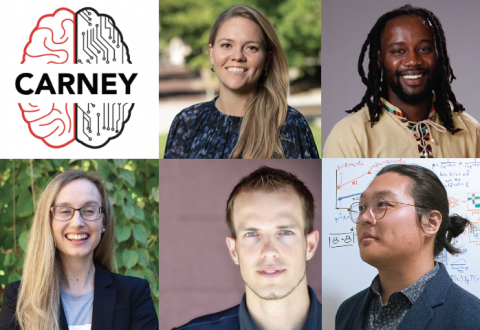
Five Brown University students have received graduate awards for the 2023/2024 academic year from the Robert J. and Nancy D. Carney Institute for Brain Science. Launched in 2001 thanks to the Dana Foundation and currently supported by several supporting entities, the Carney Graduate Awards in Brain Science recognize outstanding and productive Ph.D. candidates conducting brain science-related research in a Brown graduate program.
“Carney is proud to be able to support these exceptional students,” said Kristin Webster, assistant director of training and development in the Carney Institute. “Every year the reviewers note how difficult their task is with such a competitive and talented pool of applicants. The awardees’ research spans the spectrum of brain science research, from the human olfactory system to how our brains construct social networks. They are poised to make important contributions to research on sleep, neurodevelopmental disorders and Alzheimer’s disease. In addition to their work in the lab, they are also community leaders investing time in mentoring, teaching, and building a more welcoming and inclusive research community.”
In response to a call for applications in January, a selection committee made up of Carney faculty and postdocs evaluated applicants on scientific merit, research productivity, potential contributions to the Carney community, potential contributions to promoting diversity, equity and inclusion, and scientific independence and vision.
Awards cover student costs up to $68,000 (including stipend, tuition, and health care) and a separate $2,000 for professional development, such as to support meeting travel, workshop registration or research expenses.
Below are profiles of the awardees.
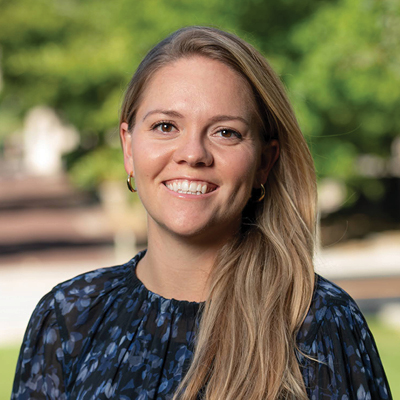
Sophie Brown, “Deciphering the roles of microglia in Alzheimer’s disease,” supported by the Dr. Achilles Frangistas Fund For Neurodegeneration Research, the Gordon S. Macklin '50 Endowed Fellowship and the Center for Alzheimer’s Disease Research Fund
“Despite decades of research, Alzheimer’s disease (AD) remains a profound and growing public health crisis, affecting nearly 6.7 million Americans and accounting for 60-80% of dementia cases worldwide. Advancing our understanding of disease etiology and the interplay of underlying cellular mechanisms is vital to the development of effective therapeutics,” explained Brown, who is conducting her doctoral research in the Borton Lab and in close collaboration with Y. Alvin Huang of the Molecular Biology, Cellular Biology and Biochemistry Department. “The central goal of my work is to expand the use of human stem cell technologies and 3D cell culture techniques to decipher specific roles of the AD-risk gene, ApoE-e4, on microglia function and the influence on neuroinflammatory mechanisms underlying Alzheimer’s disease.”
Brown holds a B.S. in Bioengineering from University of California San Diego and an M.S. in Biomedical Engineering from Brown University.
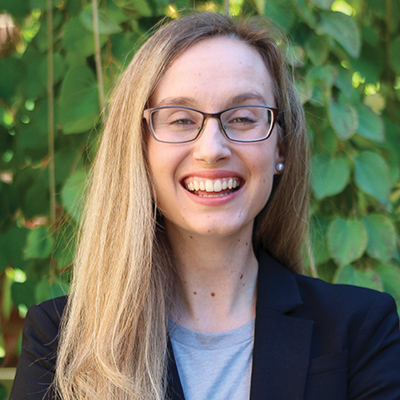
Alana Jaskir, “Generalization in reinforcement learning and the role of sleep,” supported by the Robin Chemers Neustein Graduate Fellowship
“Learning, memory and sleep are fundamental processes of cognition, and any chronic or acute disruption of these mechanisms impacts our psychiatric health and cognitive flexibility. Computational methods offer us rigorous ways to characterize these processes and draw connections between behavior and the brain,” said Jaskir, who conducts research in the Laboratory of Neural Computation and Cognition and is mentored by Michael Frank. “My work connects the established computational formalisms of reinforcement learning (i.e. trial-and-error learning) to the memory consolidation literature of sleep, expanding the computational tools available to sleep research. My work also illuminates the processes of creative learning and adaptive decision-making.”
Jaskir holds a B.S. in Computer Science from Princeton University.
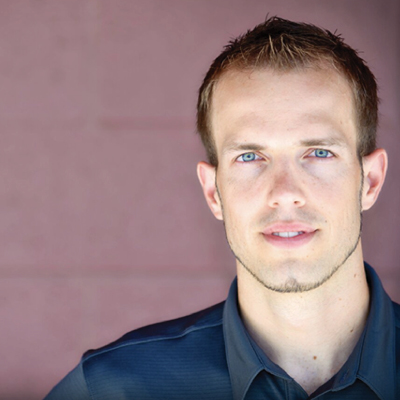
James Kentro, “Chromatin regulatory networks underlying coordinated synaptic gene expression,” supported by the Dr. Daniel C. Cooper Graduate Award, the Howard Reisman '76 Family Graduate Fellowship Fund and the Charles Dana Graduate Fellowship
“Disruption to the expression of genes important to neuronal synapse formation and function can lead to severe neurodevelopmental and psychiatric disorders. A synapse is made up of hundreds of proteins, and very little is known about how all the genes that encode these proteins are coordinately regulated,” stated Kentro, whose project is collaboratively advised by Kate O’Connor-Giles (Department of Neuroscience) and Erica Larschan (Department of Molecular Biology, Cell Biology and Biochemistry). “The goal of my research is to understand how all the genes required to build a synapse are turned on at the same time. It is my hope that expanding our knowledge of how this process is regulated will help lead to more effective diagnosis and treatments for neurodevelopmental disorders.”
Kentro holds a B.S. in Chemistry from Southern Oregon University.
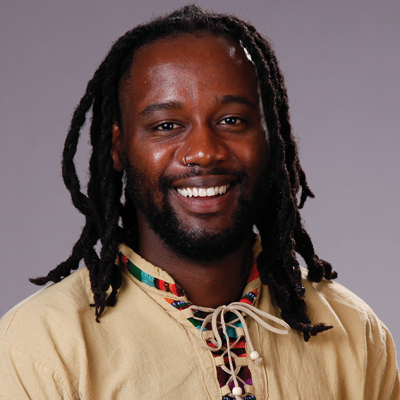
Bahati Nkera, “Elucidating the role of pheromone signaling on innate social behaviors,” supported by the JBB Endowed Graduate Fellowship in Brain Science and the Charles Dana Graduate Fellowship
“The ability of human sensory systems to extract external information, transform it into distinct percepts, and use these percepts to perform a behavior is not fully understood,” asserted Nkera, who conducts doctoral research in the Barnea Lab. “Through experiments with genetically-modified mice, my research seeks to provide insight into how the human olfactory system mediates social behaviors that are essential for the survival and proliferation of the species. Along the way, I hope to accessibly communicate my findings to the general public and actively mentor the next generation of scientists. Like the role models in my life, I will prove to them that they can achieve their goals no matter the challenges and roadblocks they may face.”
Nkera holds a B.Sc in Psychology from the University of Massachusetts Amherst and a B.Sc in Biochemistry and Molecular Biology from the University of Massachusetts Amherst.
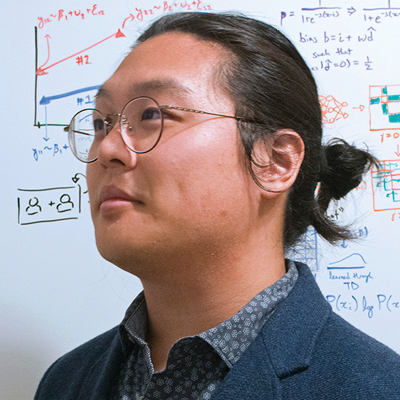
Jae-Young Son, “Mapping how the brain represents social network structure,” supported by the Brain Science - Graduate Research Fund
“My dissertation research investigates the cognitive and neural mechanisms underlying how people build abstract and inferential ‘cognitive maps’ of social network structure. We routinely infer the existence of social relationships we've never observed, which helps us solve problems like leveraging our contacts to get a job, or anticipating how gossip might spread,” explained Son, who conducts social and affective neuroscience research in the FeldmanHall Lab. “I use computational models to explain how people draw on cognitive maps to navigate social interactions, with the hope that they'll someday illuminate cognitive risk factors for loneliness. The U.S. Surgeon General has recently likened the ‘loneliness epidemic’ to other public health problems like tobacco and substance use disorders, but we know so little about the cognitive inputs to feeling isolated; understanding how people represent social networks may help us develop interventions targeting loneliness.”
Son holds a B.A. in Psychology from Stanford and a Sc.M. in Cognitive, Linguistic, and Psychological Sciences from Brown University.
The call for applications for next year’s awards will be in January, 2024.